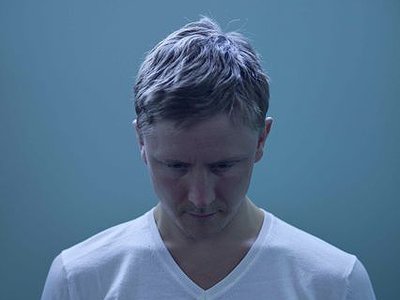The relationship between music and other forms of art - painting, video art and cinema most importantly - has become increasingly important. How do you see this relationship yourself and in how far, do you feel, does music relate to other senses than hearing alone?
In theatre or new circus I think there's lots of great stuff going on and more to be done with interesting music. Cinema maybe even more, but then again that's such twisted field to be creative in that I'm in doubt about how much interesting stuff is even possible, at least outside the underground cinema.
I think you can affect greatly how the other senses feel with music. I guess that's why they include so much music in advertisements and all to begin with, or military use of extreme audio signals. You can do great stuff with sound that relates or goes way beyond sound and hearing.
I have personally always been fascinated with trying to create music that is visual by itself and wouldn’t need actual visuals.
There seem to be two fundamental tendencies in music today: On the one hand, a move towards complete virtualisation, where tracks and albums are merely released as digital files. And, on the other, an even closer union between music, artwork, packaging and physical presentation. Where do you stand between these poles?
As I’m dependent on record labels I don't have much to say about it, I’m at their mercy. Personally though, I find the digital file system totally inadequate.
As a music lover I don't have files, legal or not. I still buy physical albums, sometimes just to know who actually made and what, where, etc. also the sound quality is an issue of course.
I think nowadays to do something well as a release it's quite likely to loose money so I see the incentive in releasing music digitally and seeing it grow and establish itself as the whole digital music service is at such an early stage. I quite believe this dualistic way you described will stay for a long while, of course with each side looking for new ways to develop.
The role of an artist is always subject to change. What's your view on the (e.g. political/social/creative) tasks of artists today and how do you try to meet these goals in your work?
I’m just trying to fulfil my own quest to make music I feel the need for. No further incentives or tasks. The whole question of the 'artist' makes me hesitate, maybe even protest.
I come from a family of art and artists and grew up with artists around us so maybe I have a problem taking that road. Maybe I just don't see the need to. What is an artist? If it's a creative person then I think we don't need to use the artist title as there are so many great creative people outside 'artistic' fields. I know farmers that are very creative. Or hunters.
If an artist is something else then I don't know. In any case I never felt the need to attach that title to myself or the stuff I do.
Music-sharing sites and -blogs as well as a flood of releases in general are presenting both listeners and artists with challenging questions. What's your view on the value of music today? In what way does the abundance of music change our perception of it?
This is such a huge topic that it's hard to say anything really, especially via an email interview.
I think overall this is the direction things are taking, and having read history and just being able to use my brain I would say it makes no sense trying to stop the progress or cry about it.
I find it very sad though, that music has become such a commodity, like a candy you chew for a moment and swallow to get the next one in. It's just crazy. Consumption of music is mad, but even madder is how much music is being released every hour. Most of it is rubbish in my opinion.
I have all support for everyone to make music, that's great. But I do have a problem with over-generic uninspiring music being spread out and released in massive amounts. It makes it quite hard to first of all hear anything interesting because of the numbing effect of so much uninteresting stuff that you somehow hear anyway. And then of course because of the huge amounts of stuff it's difficult to find the good stuff. People somehow get into this fashion of releasing lots of stuff, and while you sometimes make the greatest stuff in a short time, most often the music that is made in a rush and under pressure doesn't really give the greatest results.
How, would you say, could non-mainstream forms of music reach wider audiences?
Probably via some sort of music placements in such mainstream mediums where people just take the stuff for granted. I think the main thing is that not many people like to be introduced to something they are not used to and comfortable with. I don't know why there's such a divide in people, in such a radical way, all other things being equal. But as long as this division exists I don't think it's possible to truly bring non-commercial music towards more mainstream awareness.
Usually, it is considered that it is the job of the artist to win over an audience. But listening is also an active, rather than just a passive process. How do you see the role of the listener in the musical communication process?
I always had an easy time dividing it clearly. You are either an active music maker, or a passive music listener. I like to be on both sides and enjoy the good things in both of them.
I don't think it's the job of the artist to win over the audience.
Reaching audiences usually involves reaching out to the press and possibly working with a PR company. What's your perspective on the promo system? In which way do music journalism and PR companies change the way music is perceived by the public?
I think the press plays a huge role, always has and still does.
In principle they tell at least the mainstream what to listen to, how that stuff should sound like to you and how it will make you feel and all the things that are so great about it. People will feel secure, it's almost automated, you just have to get that song or album they talk about and that's it, you are now part of that illusion they created.
Of course this is all based on money. It's a total leech system. But even on as-low-as-you-can-get non-commercial underground stuff, you want people to find out about it and you have to do the same thing. Today, with so much music on offer and being promoted and sold, more than ever it's become... I have no words to describe.
Please recommend two artists to our readers which you feel deserve their attention.
Laura Beloff
Anni Rapinoja
Read and hear more Vladislav Delay at www.vladislavdelay.com



